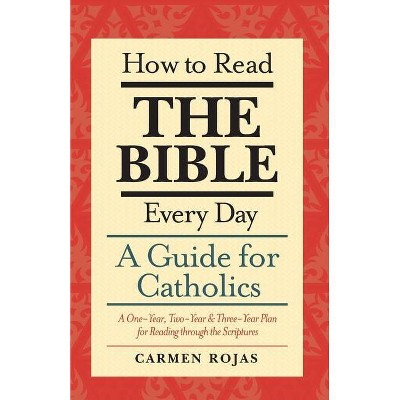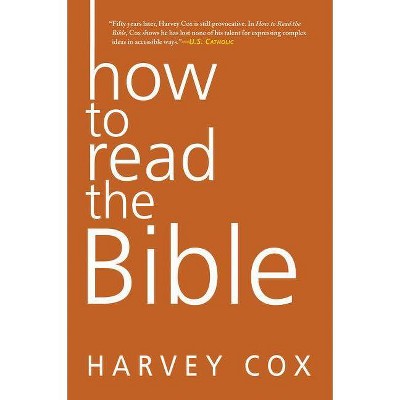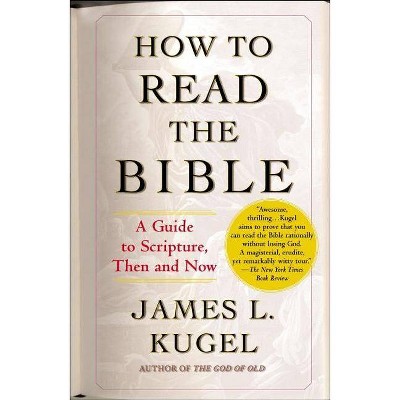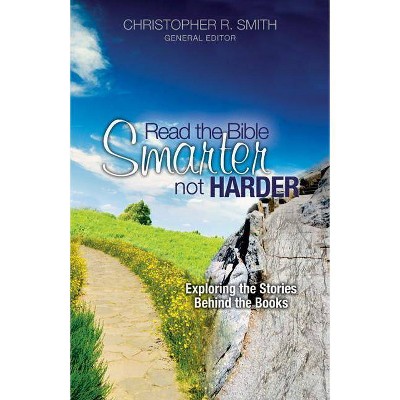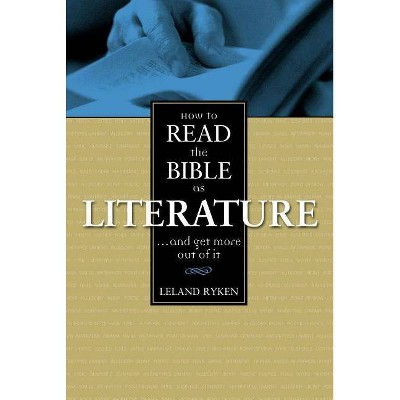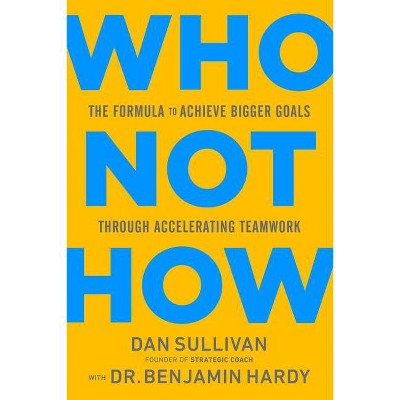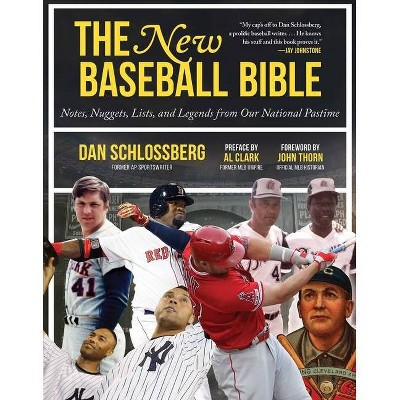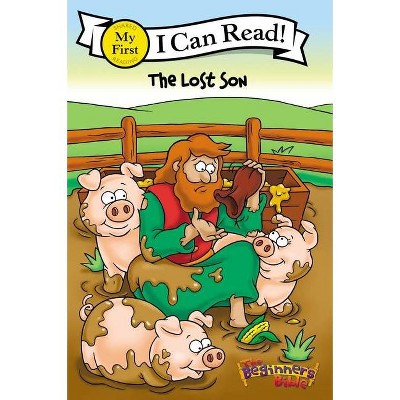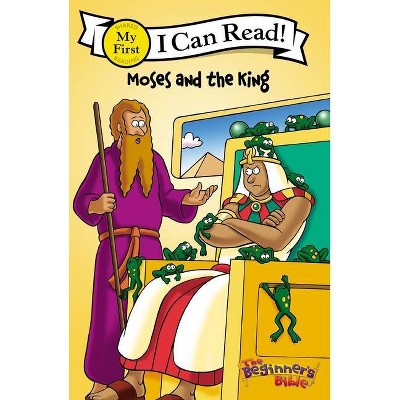How (Not) to Read the Bible - by Dan Kimball (Paperback)
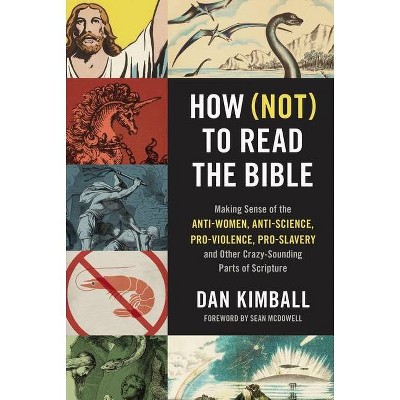
Similar Products
Products of same category from the store
AllProduct info
<p/><br></br><p><b> About the Book </b></p></br></br>For emerging generations who are open spiritually but skeptical of the church and Christianity, Kimball presents six of the most common objections made of organized religion, with answers based on the words and actions of Jesus to provide a clearer picture of vintage Christianity.<p/><br></br><p><b> Book Synopsis </b></p></br></br><p><strong>Is Reading the Bible the Fastest Way to Lose Your Faith?</strong></p><p>For centuries, the Bible was called the Good Book, a moral and religious text that guides us into a relationship with God and shows us the right way to live. Today, however, some people argue the Bible is outdated and harmful, with many Christians unaware of some of the odd and disturbing things the Bible says.</p><p>Whether you are a Christian, a doubter, or someone exploring the Bible for the first time, bestselling author Dan Kimball guides you step-by-step in how to make sense of these difficult and disturbing Bible passages. Filled with stories, visual illustrations, and memes reflecting popular cultural objections, <em>How (Not) to Read the Bible</em> is a lifeline for individuals who are confused or discouraged with questions about the Bible. It also works great as a small-group study or sermon series.</p><p/><br></br><p><b> From the Back Cover </b></p></br></br>Insights from Emerging Generations Ask members of today's emerging generations what they think of Jesus and chances are you?ll get a glowing response. Ask their opinion of the church and the reply will probably be less favorable. Why? Taking both questions to the streets, Dan Kimball returns with critical insights for both church leaders and non-Christians. Kimball looks at six common objections people have to the church. Institutional and politically motivated, judgmental, homophobic, femalerepressive, narrow-minded ? how accurate are these perceptions? Exploring these objections in two revealing and provocative books, Kimball addresses church leaders on the one hand and people who wouldn?t darken the doors of a church on the other. They Like Jesus but Not the Churchis a wakeup call to the church. I Like Jesusinvites skeptics of the church to a coffeehouse conversation to clear up truth from misconception.<p/><br></br><p><b> Review Quotes </b></p></br></br><br>Dan Kimball gracefully shows that those who mock and dismiss the Bible don't know too much, they know too little. Along the way he helps us to read the Bible-- especially the parts that seem crazy to modern ears-- as it was meant to be read. This is an extremely valuable book for this culture. Mom's and Dad's, get a copy for yourself and your teenager and study it together. The issues Dan addresses here are the ones that needlessly tear kids away from the faith. I can't recommend this book more!--<b>Frank Turek, CrossExamined.org, author of I Don't Have Enough Faith to Be an Atheist</b><br><br>Dan Kimball's How (Not) To Read The Bible is a brilliant book that delivers evidence for the skeptic and provides confidence for the saint. Kimball has given us a go-to scholarly reference that offers thoughtful explanations to the most controversial and troubling topics in all of Scripture. How (Not) To Read The Bible is a rare book that requires having two copies -- one for you and another to give away.--<b>Dave Ferguson, Lead Pastor - Community Christian Church, Author - B.L.E.S.S. 5 Everyday Ways to Love Your Neighbor and Change the World</b><br><br>How (Not) To Read The Bible is a 'right now message.' This book will help a generation see how beautiful Jesus truly is.--<b>Dr. Derwin L. Gray, Lead Pastor Transformation Church Author of The Good Life: What Jesus Teaches About Finding True Happiness</b><br><br>I can't count the number of times I've rolled my eyes and groaned when confronted with yet another online meme bashing the Bible and thought, 'If only I could recommend a book on how to read those passages of scripture intelligently'. Well, now I can! Dan's book is a superbly accessible resource for skeptics, seekers and Christians who want to understand the Bible better, especially the embarrassing bits we often skip over in church and our daily devotionals. The good news is that you'll not only be able to respond to those eye-rolling memes, but you'll end up appreciating again the strange, wild and ultimately beautiful picture the Bible gives us of the God who is made known in Jesus Christ.--<b>Justin Brierley, UK radio host, author of Unbelievable?</b><br><br>I use color coded markers to underline particular passages when I read the Bible. Yellow means - 'pay attention!', blue means - 'very poetic', green means - 'super weird or hilarious.' There is a lot of green in my Bible! Dan helps make sense of the more bizarre and demonstrates why we can have confidence that the Bible is a trustworthy and God-inspired.--<b>David Crowder, Grammy-nominated artist, musician, and author</b><br><br>In a world of quick and instant information accessible online, there are many criticisms being raised about the Bible's credibility. For that reason I'm so grateful that Dan Kimball helps us sort thru the puzzling messages emerging in this generation. In How (Not) To Read the Bible, Dan addresses how to make sense of the confusing parts of the Bible and provides us the confidence needed to embrace God's word. I'm very excited see this message get into the hearts and minds of the younger generation.--<b>Doug Fields, pastor, author, founder of Downloadyouthministry.com</b><br><br>In our culture the Bible has, for many people, become an obstacle in their journey of faith. Biblical stories about sex, slavery, and divine violence are often too bizarre and disturbing for most modern readers. Dan Kimball understands this from personal and pastoral experience, and he's given us a thoughtful guide for reading these problematic parts of the Bible. If you're struggling to make moral sense of the Bible, or know someone who is, this book is for you!--<b>Tim Mackie, The Bible Project</b><br><br>In our internet-driven culture, some of the more strange and uncomfortable Bible verses have been creatively crafted into social media ammunition against the Bible itself. These passages, to contemporary readers, can range from a light-hearted weirdness to the seemingly shocking and offensive and disillusioning to Christians reading them. Dan Kimball's book 'How Not to Read the Bible' helps us to make sense of the more frequently tossed around passages by uncovering the culture and context of these strange findings. He further invites us into some best practices when reading the Scriptures that seem to have gotten lost in all our digital noise. And he does all of this with a unique mix of depth, whimsy, and humility that is truly a rare find!--<b>Mary Jo Sharp, author of Why I Still Believe and Assistant Professor at Houston Baptist University</b><br><br>There is no one in the world better to write this book than Dan Kimball, and here's why: the Bible presents many problems to many readers, and they can be forceful and fearless in their questioning traditional beliefs in the Bible. They are not looking for pablum or authoritarian decrees, which is what most offer them. They are looking for 'professionals' who see what they see, who feel what they feel, and offer responses that have integrity. It's because the pastoral heart of Dan Kimball has heard people ask these questions and because he has worked through their issues that this book is designed for Dan to write it. A book full of theological wisdom and pastoral care for honest Bible readers who have genuine and difficult questions about the Bible.--<b>Scot McKnight Professor of New Testament Northern Seminary</b><br><br>We need this book. Dan Kimball has long been a guide for a generation trying to find their footing in a post-Christian world. For those of us who want to believe, yet struggle to make sense of the Bible in our age. Yet again, he steps in to offer kind, intelligent, wise, and, as you'd expect from Dan, funny guidance; this time around, on how (not) to read the Bible.--<b>John Mark Comer, pastor of vision and teaching at Bridgetown Church and author of The Ruthless Elimination of Hurry</b><br>
Price History
Price Archive shows prices from various stores, lets you see history and find the cheapest. There is no actual sale on the website. For all support, inquiry and suggestion messages communication@pricearchive.us
